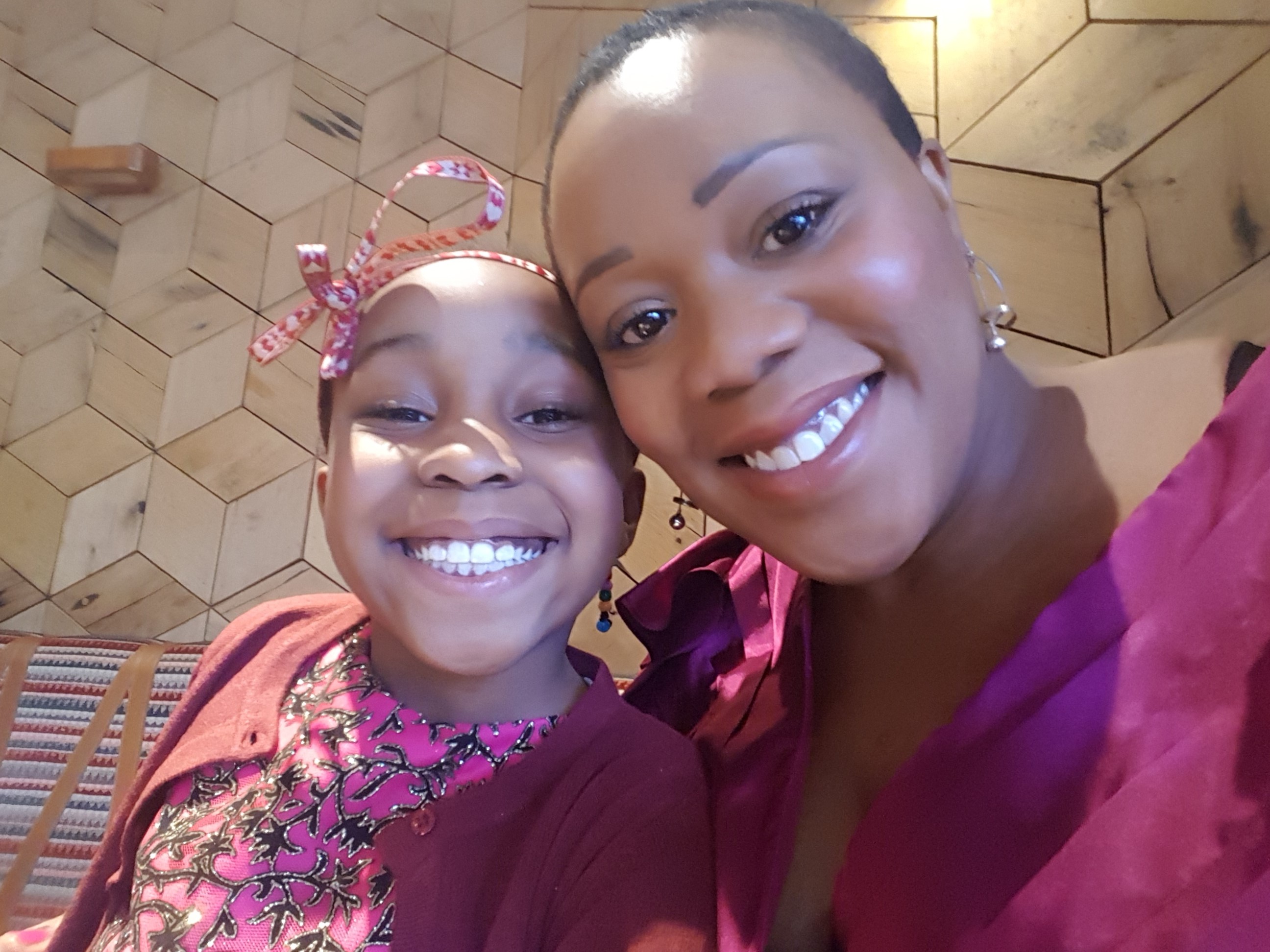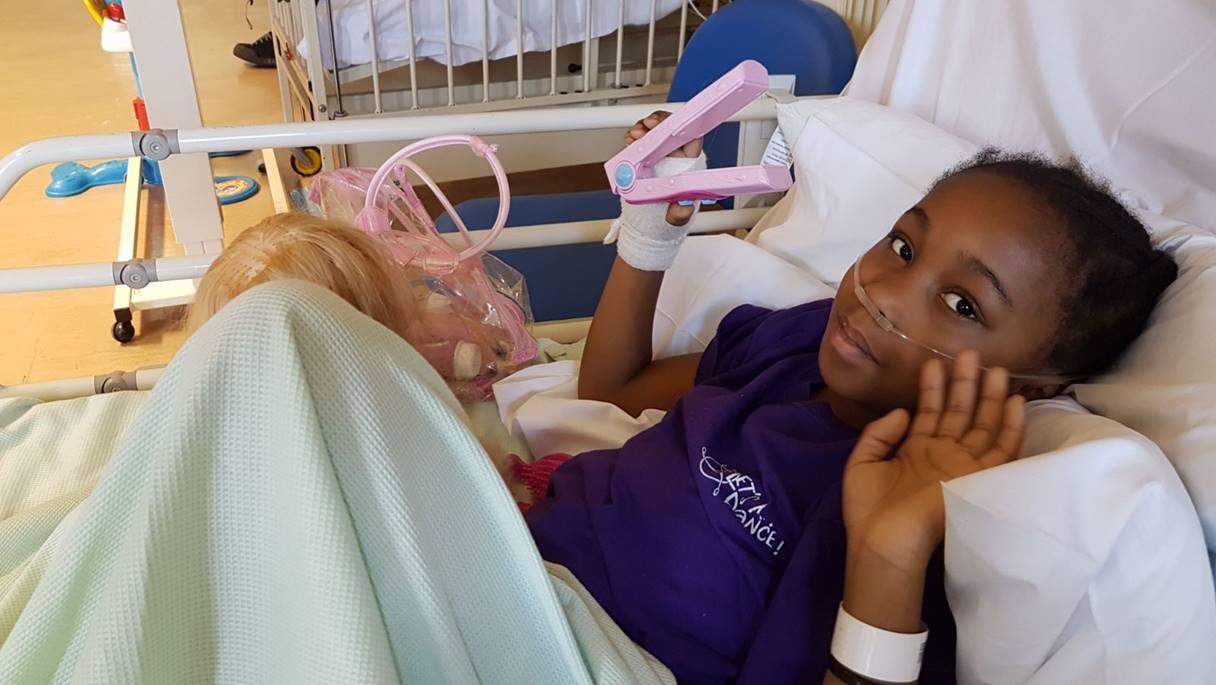Mum of girl with rare blood disease donating due to urgent shortage
Over the last three years, there has been an 80% increase in demand for a rare blood type from London hospitals. The increase is driven by a growing number of people with sickle cell disease; the most common and fastest growing genetic disorder in the UK.
The NHS urgently needs black Londoners to give blood to meet the rising demand. The rare blood group is called Ro and London’s blood Stock Holding Units are now being asked for 3,966 units every month. Ro is much more common in black people and there is not enough Ro blood to meet demand.
For mum Lisa Phillip, 40, an actress from Lewisham, the call for more blood donors, especially those from the black community, is a personal one. Lisa’s eight-year-old daughter Miai has sickle cell disease and receives blood transfusions at University College Hospital.
On the 20th July Lisa will be attending the ‘Summer of Saving Lives’ event in Catford, at the St Laurence Centre and will be donating at 1pm as a thank you to all blood donors who have helped Miai. The event has been organised with the charities SickleKan, Unsickle My Cells and WANTS ssg (We Are Not The Same Sicklecell Support Group) to encourage more black people to give blood to help sickle cell patients.
Lisa said: “There are a whirlwind of emotions that come with being a parent of a child with sickle cell disease. Miai has had six blood transfusions in her short life and I’ve witnessed the incredible benefits first hand.
“When Miai has a sickle cell crisis, it usually starts with pain in her joints and increasingly in her chest. The pain is unbearable and can be very hard to manage as it's often felt deep into the bone. It can last days or weeks.”
Lisa added: “It is very important we encourage our communities to regularly donate to ensure there is enough in supply to meet demand and help individuals like Miai on the road to recovery.
“My gratitude extends to all the donors who have helped Miai and given her the strength to do all the things she loves best. If you are thinking about giving blood for the first time or you are a regular donor please be reassured that each bag of blood is like a little bag of hope. It’s an invaluable life line.”
More than 70 people donated at the previous blood drive and more are expected to give blood at the upcoming event as there will be music, speeches, and food. Across London, there are around 4,500 black blood donors, and the number is increasing.
 Mike Stredder, director of blood donation for NHS Blood and Transplant said: “We’re so grateful for the support of SickleKan, Unsickle My Cells, and We Are Not The Same. More and more black people are saving lives through blood donation and we plan to hold more community events like this. However the overall shortage of donors remains and we need more people to register as donors – it’s quick and easy to start saving lives.”
Mike Stredder, director of blood donation for NHS Blood and Transplant said: “We’re so grateful for the support of SickleKan, Unsickle My Cells, and We Are Not The Same. More and more black people are saving lives through blood donation and we plan to hold more community events like this. However the overall shortage of donors remains and we need more people to register as donors – it’s quick and easy to start saving lives.”
Vashti-iona Beckford, 34, from South London, will be at the event donating for the second time after her aunt nearly died from a major sickle cell crisis.
Vashti said: “My aunt needed six pints of blood. The experience broke my heart. We were getting ready to call the funeral services because her body was rejecting the blood at first. Miraculously after a couple days it settled down and the blood started working.”
Vashti is the Executive Assistant and Talent Manager for The Wall of Comedy, which is supporting the event, and she now devotes her free to time to advocating for blood donation and sickle cell awareness. She overcame a childhood fear of needles to donate.
“I felt very proud to give blood for the first time,” said Vashti. “I have a sickle cell trait and I didn’t know for a long time that I was still able to give blood.
“My fear of needles is second to none but I am reminded of the last conversation I had with my aunt before she was admitted to hospital. It could have been our last and the fear of losing her was and is far greater than the one I have of a temporary pin prick!”
Iesha Jackson became a new donor at a previous partnership event and will also be giving her second donation at the St Laurence centre.
Iesha said: “I was absolutely petrified of needles but having lost a family friend through sickle cell disease it seemed right to put my fears to the side to help others.
“Everyone was really friendly and helpful. After giving blood, I received a text telling me that my blood had been dispatched and was on its way to a hospital which was incredibly exciting. I also discovered that both me and my partner are O Positive with the Ro subgroup.”
She added: “I wish I had overcome my fear of needles and donated sooner. Giving blood only takes an hour out of your day but you can save up to three lives and feel great!”
To register as a blood donor, visit www.blood.co.uk
Photo 1: Miai and mum Lisa Phillip
Photo 2: Miai in hospital
Ends
- For additional information please contact Charlotte Silver in the NHS Blood and Transplant press office on 07392 315865 or email charlotte.silver@nhsbt.nhs.uk
- Alternatively call 01923 367600 or email pressoffice@nhsbt.nhs.uk
Notes to editors
- NHS Blood and Transplant is a joint England and Wales Special Health Authority. We are responsible for ensuring a safe and efficient supply of blood and associated services to the NHS in England. We are also the organ donation organisation for the UK and are responsible for matching and allocating donated organs.
We are an essential part of the NHS and take pride in saving and improving lives by making the most of every voluntary donation, from blood and organs to tissues and stem cells. - Our work would not be possible without our donors - ordinary people doing extraordinary things by saving and improving the lives of others.
- There are apps available for Android, Windows and Apple Smartphone and tablet devices which enable donors to search for sessions based on their location and book and manage appointments.
- Our donor line - 0300 123 23 23 - is available 24 hours a day, seven days a week with all calls charged at the standard local rate, even from mobile phones
- NHS Blood and Transplant needs to collect 1.5 million units of blood each year to meet the needs of patients across England. It’s important that we collect the right amount of each blood group at the right time to meet patient needs.
- There are four main blood groups – O, A, B and AB. Group O is the most common and therefore the most in demand. A regular supply of blood is vital – red cells last 35 days and platelets only 7 days
- The overall demand for blood is falling by 3-4% per year. This is due to improvements in clinical practice and is a trend that is being seen around the world. The drop in demand for blood is also thanks to our work with hospitals to ensure blood is used appropriately for patients.
- We need nearly 250,000 new blood donors each year to replace those who no longer donate for reasons such as ill health, pregnancy or foreign travel and to ensure we have the right mix of blood groups to match patient needs in the future
- Some blood groups, such as O negative (the universal blood group), A negative and B negative are particularly vulnerable to shortfalls. So we want people with those blood groups to donate as regularly as they can. We also need more black African, black Caribbean, mixed race and South Asian people to become blood donors to reflect the ethnic diversity of patients
- Female whole blood donors can give blood every 16 weeks, while male blood donors must wait 12 weeks between donations. Platelets can be donated every 2 weeks.